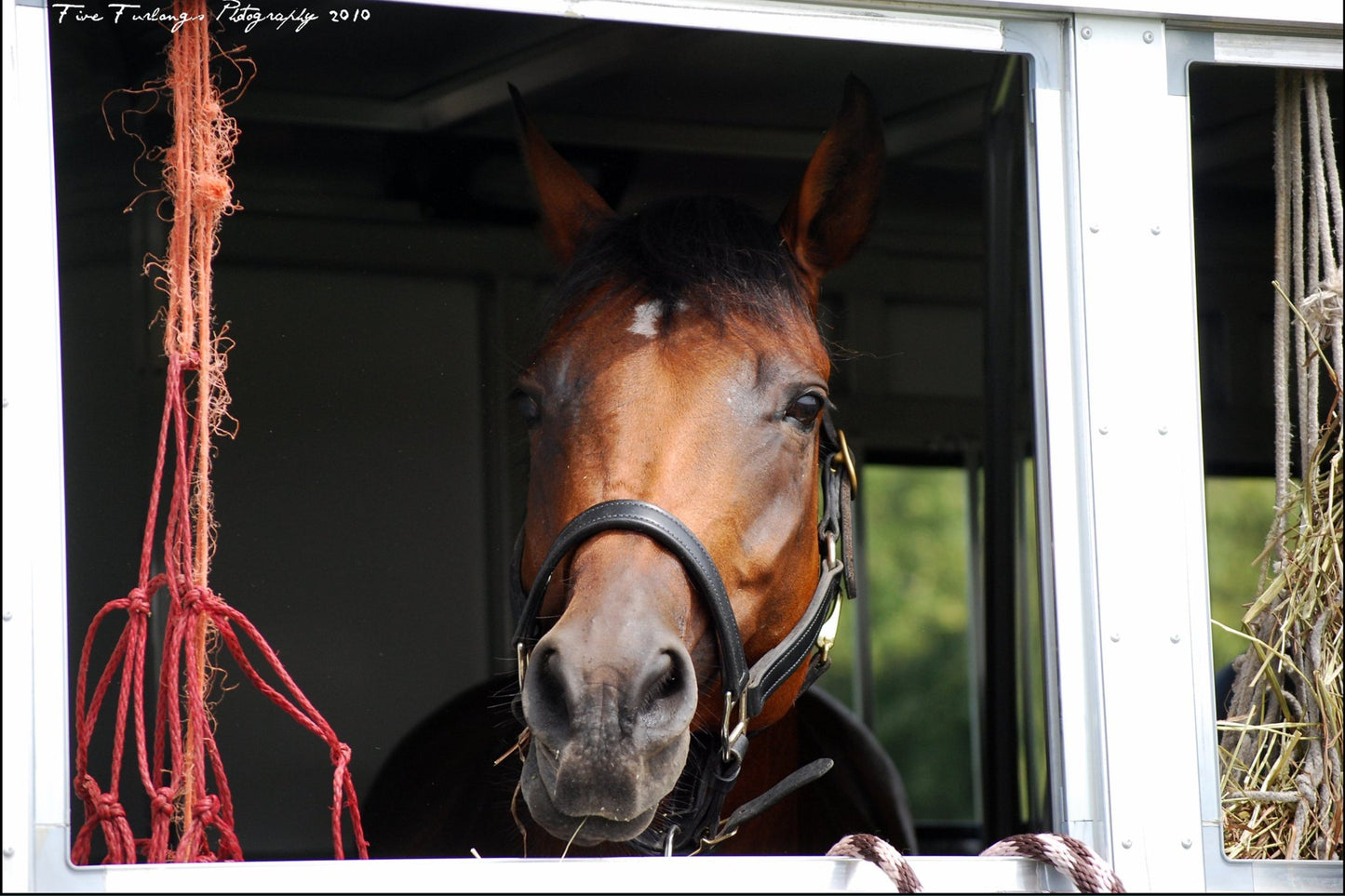
Horses can be resilient creatures, but they are hardly designed for life on the highway. For competitive equestrians, there’s no avoiding trailer travel, nor the stress it places on our horses. Even the most agreeable equine traveler is going to feel some bit of stress during transport (who doesn't?), and we all know stress can trigger a cascade of problems. It is crucial to ensure that you're feeding your horses the best nutrients in order to stay health on the road.
Consider the physical toll (loading/unloading, movement and vibration from the road), compounding the physiological stress of being separated from the herd and confined to a box zipping down the highway.
Many of the risks associated with travel can be reduced, however, and like most things wellness related, it all starts with the right plan and good nutrition.
You can drive a horse to water, but good luck trying to get them to drink any on the way.
A study by UC-Davis found that, on average, horses drop 5% of their body weight during long-distance travel, making them much more susceptible to dehydration during this time. Even shorter trips (5 hours and under) can tax the system.
So plan ahead! Consider adding electrolytes to the diet for a few days leading up to the trip, and in the days that follow. Electrolyte supplementation will help replenish the key minerals and nutrients lost through perspiration, and also encourage water consumption. Speaking of water, always make sure there is plenty on hand. Consider an electrolyte supplement without added sugar or dyes. The last thing we want is a spike in glucose levels in an already suppressed immune system.
Let's not forget where horses internalize most of the stress associated with travel: the gut. Adding GI support to the daily feed tub is good insurance for any sport horse, but especially before and after shipping. A good probiotic can help maintain healthy gut flora and may reduce the risk of stress-induced diarrhea and gastric ulcers. Your gut supplement should also include an organic source of soluble and insoluble fiber, like psyllium husk, to support optimal motility in the bowels, potentially decreasing the risk of colic.
Depending on the length of the trip, you will likely either have hay available in the trailer or soon after arriving at the show. Vitamin E is a proven antioxidant that helps boost the immune system, which is especially important when changing environments. Even the best hay lacks adequate amounts of vitamin E, so supplementation is key whenever grazing time is limited.
Being confined and stationary can also lead to joint and muscle stiffness, so keep the joint support handy. Although confined, horses are constantly moving their weight around when traveling, which takes more of a physical toll than you might think.
Bottom Line
While we cannot control every aspect of travel, we can still do our part to ensure our horses are getting the nutritional support needed to maintain optimal health and happiness, wherever the road might lead.
All content is for informational purposes only. Consult with a veterinarian or equine practitioner regarding the health and wellness of your animals.
